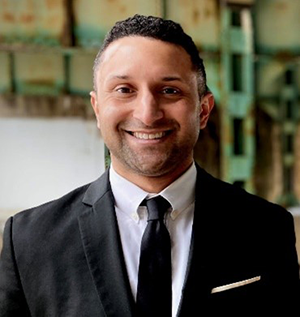Reading through Tzav is like peeking into a world-class chef's bustling kitchen. The were like master chefs, following a biblical recipe. Just like a chef might wear a white knot button coat and chef's hat, the kohanim wore special garments with sacred adornments: a jeweled breastplate, turban, headband, and robe. The kohanim's ingredients were carefully chosen; the animals were raised from birth to be an offering and slaughtered in the prescribed way. Likewise, professional chefs don't just arbitrarily pick any fruit and vegetable they see at the market; they select the freshest fruits and vegetables they are able to buy.
The kohanim's recipe was complicated: Leviticus 6:13-14: "...A tenth of an ephah of choice flour as a regular meal offering, half of it in the morning and half of it in the evening, shall be prepared with oil on a griddle. You shall bring it well soaked, and offer it as a meal offering of baked slices…" These burnt offering meals were made with tremendous care!
Personally, I find it satisfying to prepare meals for loved ones. Every now and then, I'll make a big dinner for my partner and me. I really enjoy being in the kitchen, chopping, mixing, and preparing that meal. I make an Ashkenazi Jewish dish called holishkes. It takes hours to prepare and is quite labor intensive, but the act of mixing together the rice, rolling it in the cabbage leaves, and stacking it in the pot feels sacred to me. The look on my partner's face as he takes that first bite is so satisfying!
This is how I imagine the kohanim felt as they were preparing the burnt offerings. Imagine how they must have felt as they brought those offerings down to the people! Did the kohanim feel a sense of pride when the people ate the offering they had prepared? Did the people appreciate the time and effort that had gone into the preparation?
The word for the offering is special in itself. It's either minchah, which can mean "gift" or "tribute," or shelem, which means "peace offering" (deriving from the same linguistic root as ). Preparing a meal for someone is not just a gift; it's a tribute to the person eating it. Offering sustenance is a gift of peace.
The kohanim ate the peace offering in the Ohel Moeid - a tent outside of the camp that served as a tabernacle where people could go to pray and be with God. One might call that a "safe space," or a space where one can feel seen.
How can we create a Ohel Moeid for the people we care about? The food we eat is a gift from God. We can be part of that holy gift. If you're able, prepare a meal for someone you care about. Perhaps you could even recite a blessing while preparing the food to make it more special. Here is a lovely blessing written by Leah Koenig and Anna Stevenson called the "Cooking Bracha:"
"Blessed are You
Creator of the world
Who brings forth fruit from the Earth.
Blessed are You,
Who gives us knowledge of cooking, and time to cook
And who has blessed us with the need for nourishment
so that we can fully understand Your gifts.
May it be Your will
That the food that I cook
Bring nourishment, fulfillment, and happiness
to those who eat it
And bring honor to the land and all the people that make this meal possible."


